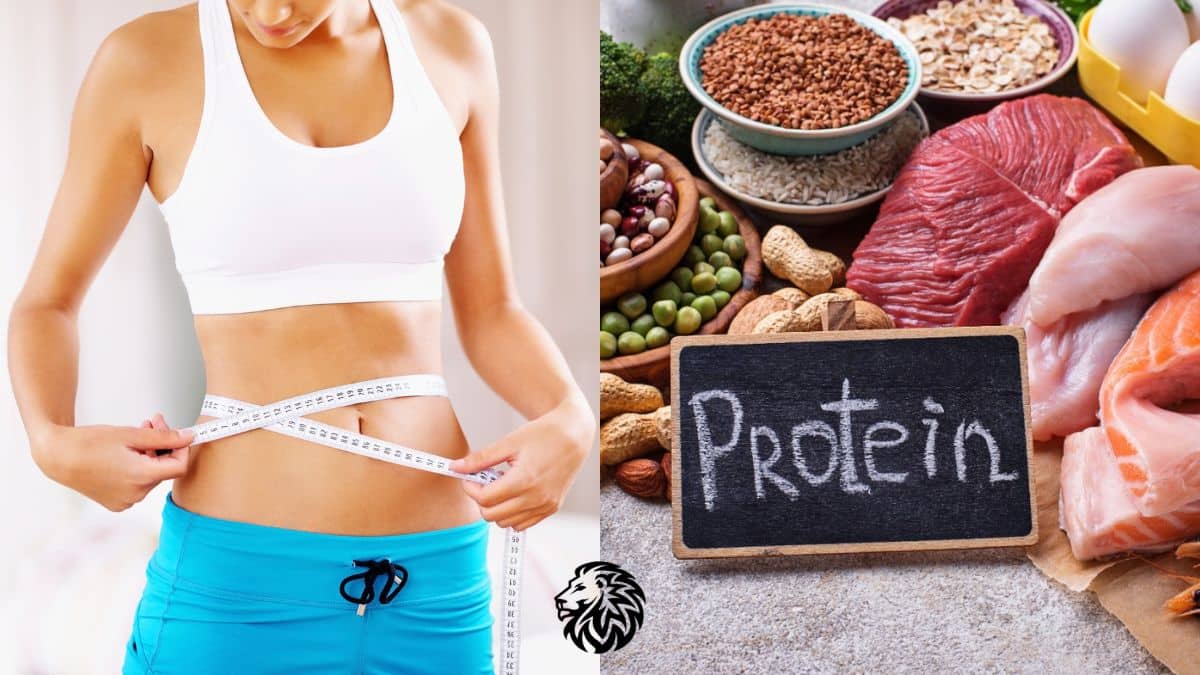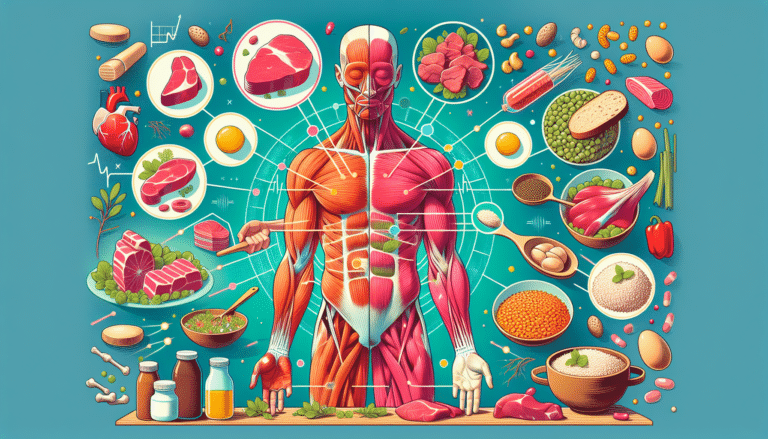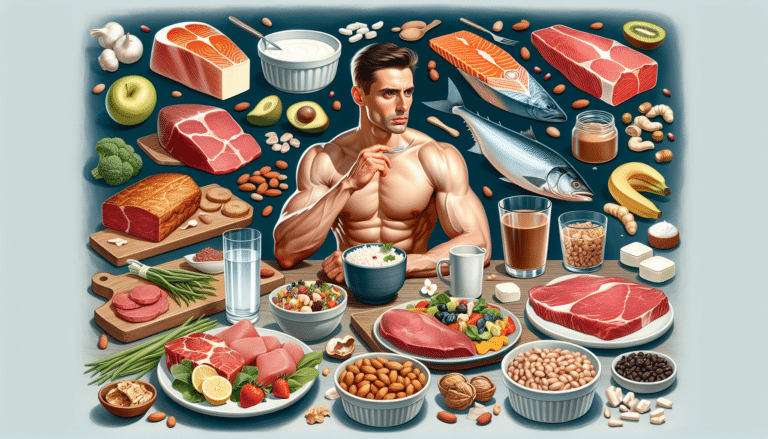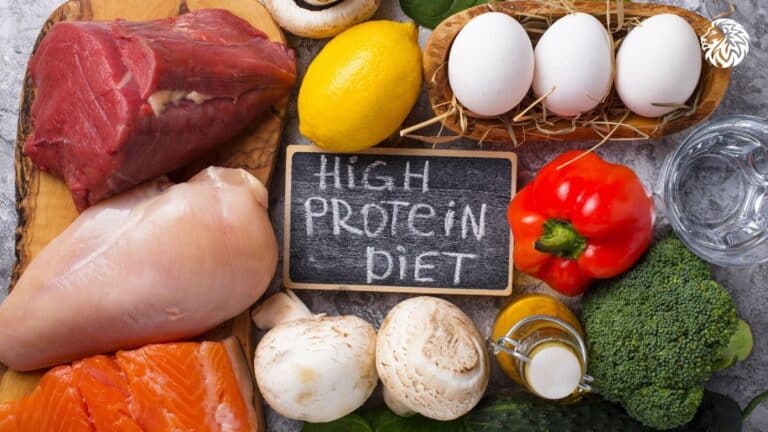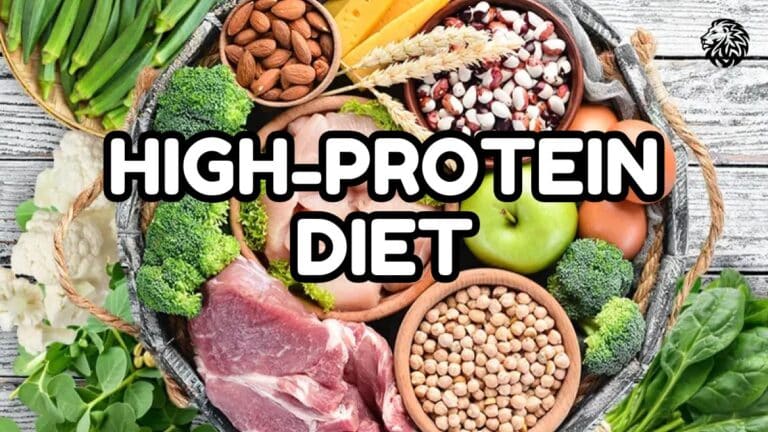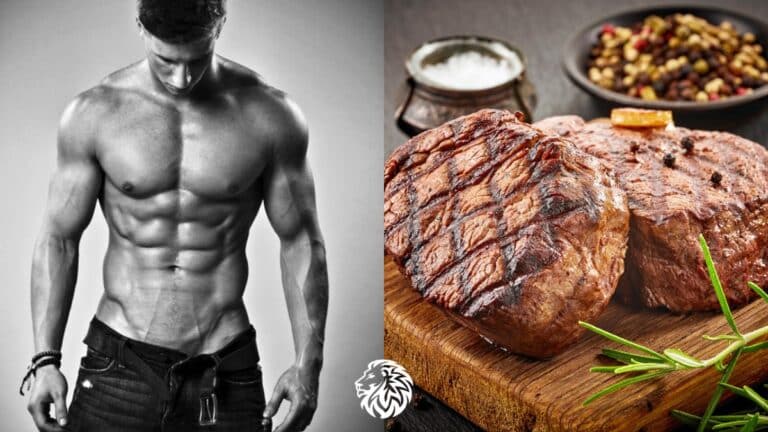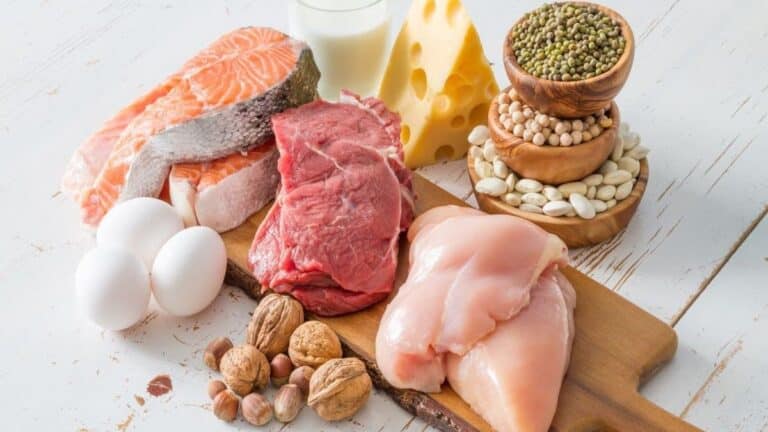High-protein diets have become increasingly popular recently, largely because of their potential to support weight loss, muscle growth, and general wellbeing. These regimens primarily emphasize consuming protein-rich fare, often cutting back on carbohydrates and fats. Numerous high-protein diet plans cater to distinct dietary inclinations and weight loss objectives.
As a vital macronutrient, protein takes center stage in a host of physiological processes, such as muscle growth and repair, enzyme production, and fortifying the immune system. When targeting weight loss, protein’s importance is amplified, given its capacity to enhance satiety, stimulate metabolism, and preserve muscle mass. These factors synergistically enable individuals to shed surplus body fat while sustaining or even augmenting muscle.
This article endeavors to present a thorough guide to high-protein diets for weight loss. We will scrutinize the science underpinning the interplay between protein and weight loss, dissect high-quality protein sources, and delve into an assortment of high-protein diet strategies. Moreover, we will investigate the ideal protein intake for individuals, examine potential risks and considerations, and furnish tips for thriving on a high-protein diet. Upon concluding this article, readers will possess the knowledge required to make informed choices regarding the integration of a high-protein diet into their weight loss journey.

Understanding Protein
Definition and function of proteins
Proteins, intricate molecules comprising lengthy amino acid chains, are the backbone of these indispensable macronutrients. They fulfill a wide array of functions within the human body, such as providing structural support, catalyzing biochemical reactions, and enabling cell-to-cell communication. Proteins are crucial for sustaining the integrity of our tissues, organs, and immune system, while also playing a pivotal role in energy generation.
Amino acids and their role
Amino acids, the organic compounds that coalesce to form proteins, are the linchpins of these vital macronutrients. Of the 20 different amino acids, nine are classified as essential, as the body cannot synthesize them and must procure them from dietary sources. Conversely, the remaining 11 are deemed non-essential since the body can produce them from other amino acids or nutrients.
Amino acids occupy a central role in numerous metabolic processes, such as energy production and the synthesis of neurotransmitters, hormones, and other critical molecules. The specific combination of amino acids within a protein dictates its unique function and attributes.
Protein synthesis and metabolism
Protein synthesis, the intricate process wherein cells construct new proteins utilizing the genetic information encoded in DNA, encompasses the transcription of DNA into RNA and the subsequent translation of RNA into an amino acid chain that ultimately folds into a functional protein. Protein synthesis is modulated by various factors, including nutrient availability, hormonal cues, and cellular energy levels.
Regarding metabolism, proteins are deconstructed into their constituent amino acids by enzymes present in the stomach and small intestine. Once absorbed into the bloodstream, these amino acids are transported to cells, where they can be harnessed for protein synthesis or transformed into other molecules, such as glucose or fatty acids. The breakdown and utilization of proteins necessitate more energy compared to carbohydrates or fats, contributing to protein’s thermic effect and its potential advantages for weight loss.

Protein and Weight Loss
Role of protein in satiety
Satiety, the sensation of fullness and contentment following a meal, is significantly influenced by protein. Ingesting protein-rich sustenance helps regulate appetite by eliciting the release of hormones that signal satiety to the brain, such as cholecystokinin (CCK) and glucagon-like peptide-1 (GLP-1). Consequently, individuals embracing a high-protein diet may experience diminished hunger and cravings, facilitating the maintenance of a calorie deficit and promoting weight loss.
Thermic effect of protein
The thermic effect of food refers to the energy required to digest, absorb, and metabolize nutrients. Protein has a higher thermic effect than carbohydrates or fats, meaning that the body expends more energy processing protein-rich foods. This increased energy expenditure can contribute to weight loss by boosting metabolism and promoting a calorie deficit. Moreover, the thermic effect of protein can help counteract the natural decline in metabolic rate that often occurs during weight loss.
Preserving muscle mass during weight loss
When losing weight, it is crucial to preserve muscle mass while shedding body fat. Consuming adequate protein during periods of calorie restriction can help maintain muscle tissue by providing the necessary amino acids for protein synthesis. This is particularly important for those who engage in resistance training, as a high-protein diet can support muscle growth and recovery in addition to promoting fat loss.
Benefits of protein for overall health
Aside from its direct impact on weight loss, protein provides numerous health benefits that can indirectly support weight management. For example, protein contributes to stabilizing blood sugar levels, thereby reducing energy crashes and cravings. Additionally, it supports a healthy immune system, promotes skin and bone health, and assists in the production of essential hormones and enzymes. These benefits work in tandem to create a foundation for sustainable weight loss and overall well-being.
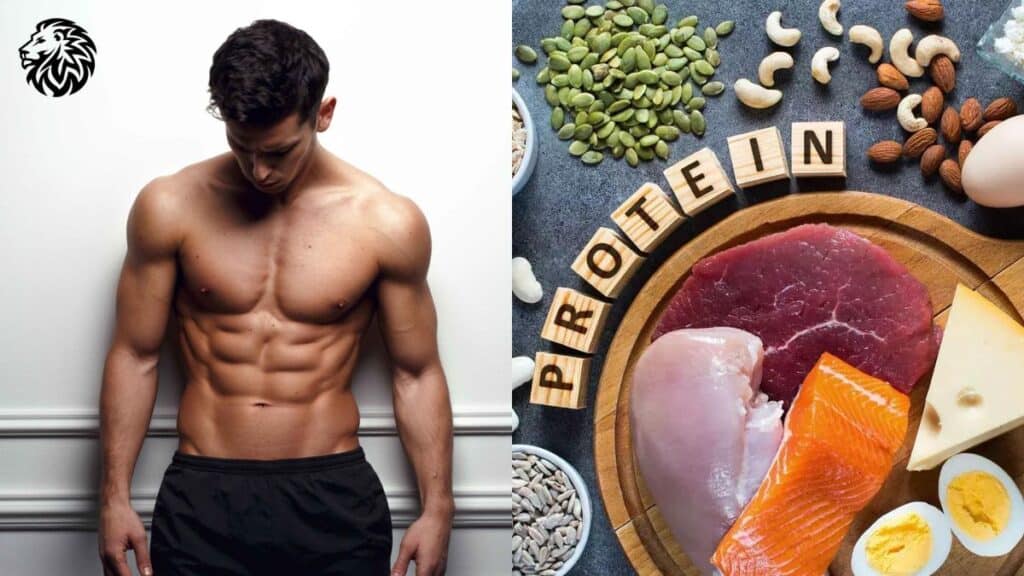
Choosing High-Quality Protein Sources
Complete vs. incomplete proteins
Proteins are categorized as complete or incomplete based on their amino acid profile. Complete proteins contain all nine essential amino acids in sufficient quantities, whereas incomplete proteins lack one or more essential amino acids. To optimize protein intake for weight loss and overall health, it is important to consume a variety of high-quality, complete protein sources.
Animal-based protein sources
- Lean meats: Lean cuts of beef, pork, and lamb are excellent sources of complete protein. They also provide essential nutrients, such as iron, zinc, and B vitamins. When selecting meats, opt for lean cuts and choose grass-fed or organic options when possible to minimize exposure to antibiotics and hormones.
- Poultry: Chicken and turkey are both high in protein and lower in fat than many red meats. Opt for skinless, white meat for the leanest option, and consider including organic or free-range poultry in your diet.
- Fish and seafood: Fish and shellfish provide high-quality protein and beneficial omega-3 fatty acids. Fatty fish, such as salmon, mackerel, and sardines, are particularly nutritious choices. Aim to consume at least two servings of fish per week, and choose wild-caught varieties when possible.
- Dairy products: Milk, yogurt, and cheese are rich sources of complete protein and essential nutrients, such as calcium and vitamin D. Opt for low-fat or fat-free dairy products to minimize saturated fat intake while still benefiting from the high protein content.
Plant-based protein sources
- Legumes: Beans, lentils, and chickpeas are excellent plant-based sources of protein, fiber, and essential nutrients. Incorporate a variety of legumes into your diet to ensure a balanced amino acid profile.
- Nuts and seeds: Almonds, walnuts, chia seeds, and flaxseeds are rich in protein, healthy fats, and fiber. They can be added to meals or consumed as snacks to boost protein intake.
- Whole grains: Quinoa, brown rice, barley, and whole wheat products offer plant-based protein along with complex carbohydrates and fiber. Include a variety of whole grains in your diet for a diverse range of nutrients and amino acids.
- Soy products: Tofu, tempeh, and edamame are complete protein sources derived from soybeans. They are versatile and can be easily incorporated into various dishes.
Balancing protein intake with other macronutrients
Embarking on a high-protein journey for weight loss, one mustn’t forget the importance of carbohydrates and fats. Nutrient-dense complex carbohydrates like fruits, vegetables, and whole grains provide essential energy and fiber. Healthy fats—think avocados, nuts, and olive oil—play a pivotal role in nutrient absorption and promoting satiety. A well-rounded, sustainable diet incorporates various protein sources, striking a harmonious balance with other macronutrients, thus supporting weight loss and overall health.
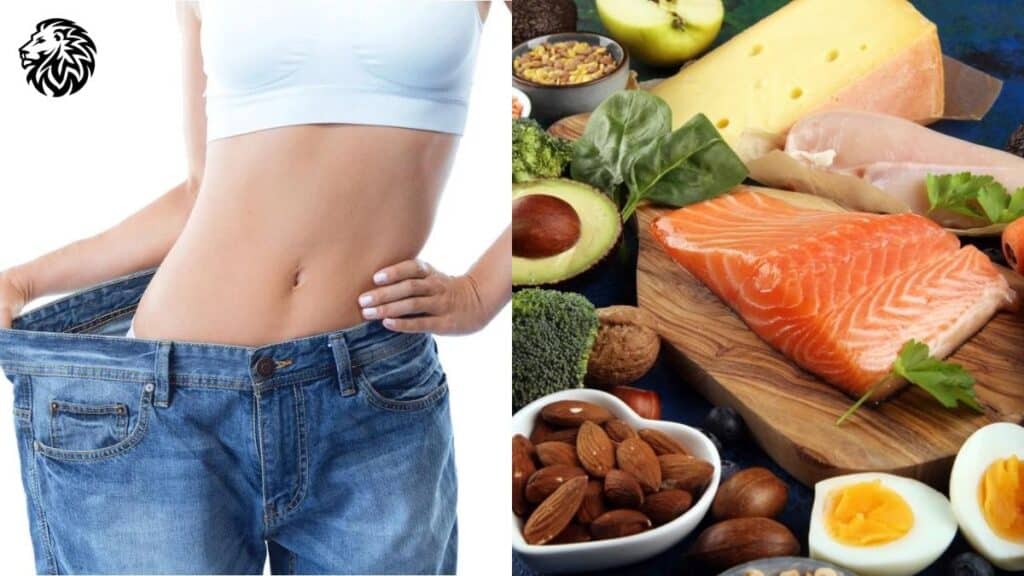
How Much Protein is Enough?
Recommended daily protein intake
Protein intake recommendations hinge on age, gender, activity levels, and overall health. The general rule of thumb: the Recommended Dietary Allowance (RDA) suggests 0.8 grams of protein per kilogram of body weight for adults. Those on a weight loss or muscle-building mission could benefit from 1.2 to 2.0 grams per kilogram. Consult a healthcare professional or registered dietitian to personalize your protein intake.
Individual factors influencing protein needs
Several factors can influence an individual’s protein needs, including:
- Age: Protein requirements tend to increase with age, as older adults may have a reduced ability to synthesize protein and may require more to maintain muscle mass and strength.
- Activity level: Athletes and individuals engaged in regular physical activity, particularly resistance training, may require higher protein intakes to support muscle growth, repair, and recovery.
- Health status: Certain health conditions, such as pregnancy, lactation, or recovery from illness or surgery, may increase protein requirements.
- Body composition goals: Individuals aiming to lose body fat while preserving or increasing muscle mass may benefit from higher protein intakes.
Monitoring and adjusting protein intake
It is important to monitor and adjust protein intake as needed to ensure that individual protein requirements are met. Tracking food intake using a food diary or a mobile app can help individuals assess their protein consumption and make adjustments as necessary. Additionally, monitoring body composition changes, such as changes in muscle mass and body fat percentage, can provide insight into the effectiveness of the current protein intake.
If weight loss plateaus or muscle mass declines, individuals may need to reevaluate their protein intake and consider increasing it. Conversely, if kidney function or other health concerns arise, protein intake may need to be decreased. Regular check-ins with a healthcare professional or registered dietitian can provide guidance and support in determining the appropriate protein intake based on individual needs and goals.
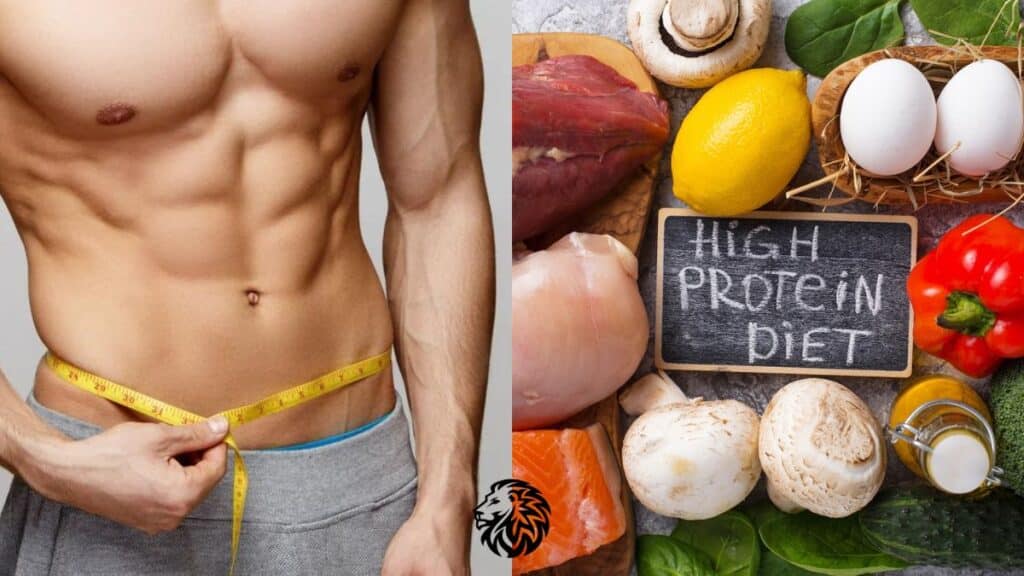
Potential Risks and Considerations
Kidney health and high-protein diets
Although weight loss-friendly, high-protein diets raise kidney health concerns. Excessive protein consumption may elevate kidney damage risk, particularly in those with pre-existing kidney conditions. For healthy individuals, moderate protein intake increases are generally safe. Seek healthcare professional guidance before starting a high-protein diet, especially if kidney issues or a family history of kidney disease exist.
Bone health concerns
High-protein diets and bone health share a contentious relationship. Some research links excessive protein intake to increased calcium excretion, possibly contributing to bone loss and osteoporosis risk. However, other studies debunk these claims. To minimize risks, ensure adequate calcium and vitamin D intake, engage in regular weight-bearing exercise, and consult a healthcare professional to establish appropriate protein consumption.
Nutrient deficiencies
Carbohydrate and fat restrictions in high-protein diets can result in nutrient deficiencies if not carefully planned. Overemphasis on protein might overshadow essential nutrients found in fruits, vegetables, whole grains, and healthy fats. A balanced diet comprising various protein sources and nutrient-dense foods can help prevent deficiencies.
Sustainability of high-protein diets
For some individuals, maintaining a high-protein diet may be challenging in the long term. Potential barriers include food preferences, cost, and the monotony of a restricted diet. To improve the sustainability of a high-protein diet, individuals should consider incorporating a variety of protein sources, focusing on nutrient-dense options, and allowing for occasional indulgences in moderation.
Balancing benefits and risks
While high-protein diets can be effective for weight loss, it is essential to balance the potential benefits with the associated risks. By monitoring protein intake, ensuring a balanced diet, and regularly consulting with a healthcare professional, individuals can optimize their protein consumption for weight loss while minimizing potential adverse effects on health.

Tips for Success on a High-Protein Diet
Meal planning and preparation
Planning and preparing meals in advance can significantly contribute to the success of a high-protein diet. By setting aside time each week to plan meals and shop for ingredients, individuals can ensure they have access to high-quality protein sources and other nutritious foods. Preparing meals at home allows for better control over portion sizes and nutrient content, making it easier to meet protein and calorie goals.
Incorporating variety into your diet
Eating a diverse range of protein sources not only helps prevent boredom but also ensures a well-rounded intake of essential amino acids and nutrients. Try experimenting with different protein-rich foods, such as lean meats, poultry, fish, dairy, legumes, nuts, seeds, and whole grains. Additionally, explore various cooking methods and recipes to keep your meals interesting and flavorful.
Staying hydrated
Consuming adequate water is essential for overall health and can also aid in weight loss. Staying hydrated can help control appetite, boost metabolism, and support the kidneys in processing increased protein intake. Aim to drink at least eight 8-ounce glasses of water daily, or more if you engage in regular physical activity or live in a hot climate.
Combining a high-protein diet with regular exercise
Incorporating regular exercise into your weight loss plan can improve results and support overall health. Resistance training, such as weightlifting or bodyweight exercises, can help build and maintain muscle mass, while cardiovascular activities, such as running or swimming, can enhance fat loss and improve heart health. Aim to engage in a combination of both resistance and cardiovascular exercise for optimal results.
Tracking progress and adjusting as needed
Regularly monitoring your progress can help you stay motivated and make adjustments as necessary. Track your food intake, exercise, and body composition changes, such as weight, body fat percentage, and muscle mass. If you find that your progress stalls or you encounter challenges, consider consulting with a healthcare professional or registered dietitian to help fine-tune your high-protein diet and exercise plan.

Conclusion
High-protein diets can be an effective tool for weight loss, as they promote satiety, increase the thermic effect of food, and help preserve muscle mass during calorie restriction. By choosing high-quality protein sources and balancing them with other macronutrients, individuals can create a sustainable, nutrient-dense diet that supports their weight loss goals while promoting overall health.
It is crucial to recognize that each person’s protein needs and optimal weight loss strategies may vary depending on factors such as age, activity level, and health status. Regularly monitoring progress and making adjustments as needed can help individuals fine-tune their high-protein diet and exercise plan to achieve the best results.
Embarking on a high-protein diet for weight loss should be done under the guidance of a healthcare professional or registered dietitian. They can help determine the appropriate protein intake based on individual needs and goals, address any potential risks or concerns, and provide ongoing support throughout the weight loss journey. By taking a personalized approach and prioritizing overall health, individuals can maximize the benefits of a high-protein diet and achieve lasting weight loss success.
Frequently Asked Questions
Can a high-protein diet cause kidney problems for healthy individuals?
While there is some concern that excessive protein intake may negatively impact kidney health, moderate increases in protein consumption are generally considered safe for healthy individuals. However, those with pre-existing kidney conditions or a family history of kidney disease should consult with a healthcare professional before embarking on a high-protein diet.
Will a high-protein diet cause me to feel fatigued or sluggish?
Some individuals may experience a temporary decrease in energy levels when transitioning to a high-protein diet, particularly if carbohydrate intake is significantly reduced. To maintain energy levels, ensure a balanced intake of complex carbohydrates, such as whole grains, fruits, and vegetables, and consider gradually increasing protein intake rather than making abrupt changes.
Is it possible to follow a high-protein diet as a vegetarian or vegan?
Yes, it is possible to follow a high-protein diet as a vegetarian or vegan. Plant-based protein sources, such as legumes, nuts, seeds, whole grains, and soy products, can provide adequate protein for weight loss and overall health. Be sure to consume a variety of plant-based proteins to ensure a balanced intake of essential amino acids.
How can I prevent nutrient deficiencies while following a high-protein diet?
To avoid nutrient deficiencies on a high-protein diet, ensure you consume a balanced and diverse range of foods, including fruits, vegetables, whole grains, and healthy fats. By incorporating nutrient-dense foods and focusing on a variety of protein sources, you can provide your body with essential vitamins and minerals while still prioritizing protein intake for weight loss.
Can I consume protein shakes or supplements to increase my protein intake on a high-protein diet?
Protein shakes and supplements can be a convenient way to boost protein intake, particularly for individuals with busy schedules or limited access to high-quality protein sources. However, it is essential to prioritize whole foods as the primary source of protein and nutrients whenever possible. If you choose to use protein shakes or supplements, opt for high-quality products with minimal added sugars and artificial ingredients, and consult with a healthcare professional to ensure they are appropriate for your specific needs and goals.
References and Further Reading
- WebMD. (n.d.). High-Protein Diet: What It Is and How to Do It. Retrieved from https://www.webmd.com/diet/ss/slideshow-high-protein-diet
- Healthline. (n.d.). A High-Protein Diet Plan to Lose Weight and Improve Health. Retrieved from https://www.healthline.com/nutrition/high-protein-diet-plan
- Medical News Today. (n.d.). What to eat on a high-protein diet. Retrieved from https://www.medicalnewstoday.com/articles/321522
- Harvard Health Publishing. (n.d.). High-protein foods: The best protein sources to include in a healthy diet. Retrieved from https://www.health.harvard.edu/nutrition/high-protein-foods-the-best-protein-sources-to-include-in-a-healthy-diet
- Mayo Clinic. (n.d.). High-protein diets: Are they safe? Retrieved from https://www.mayoclinic.org/healthy-lifestyle/nutrition-and-healthy-eating/expert-answers/high-protein-diets/faq-20058207
